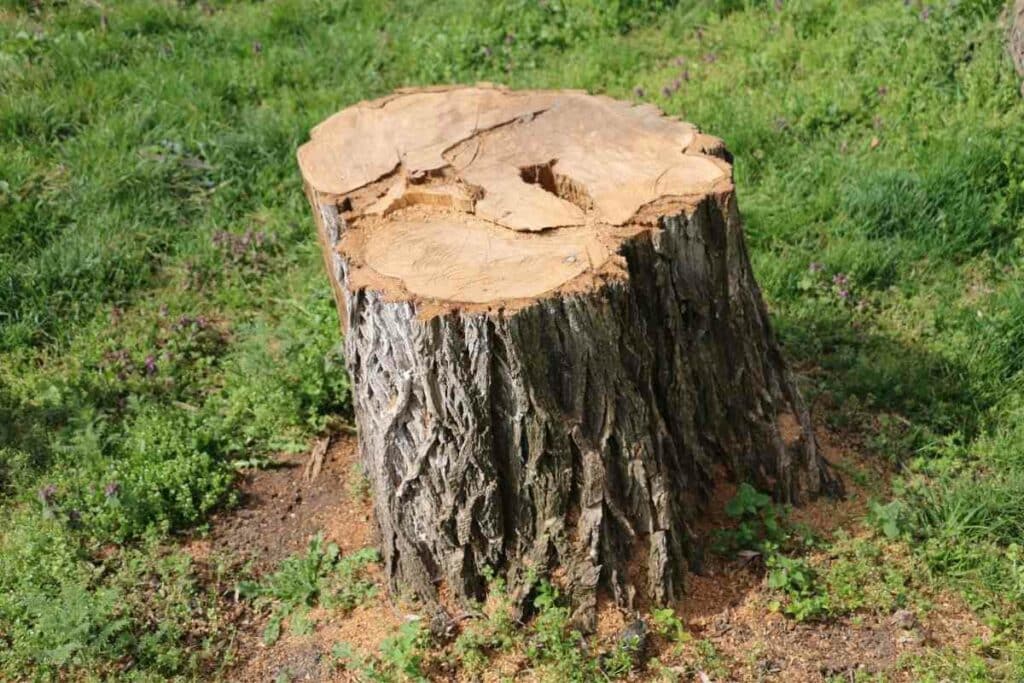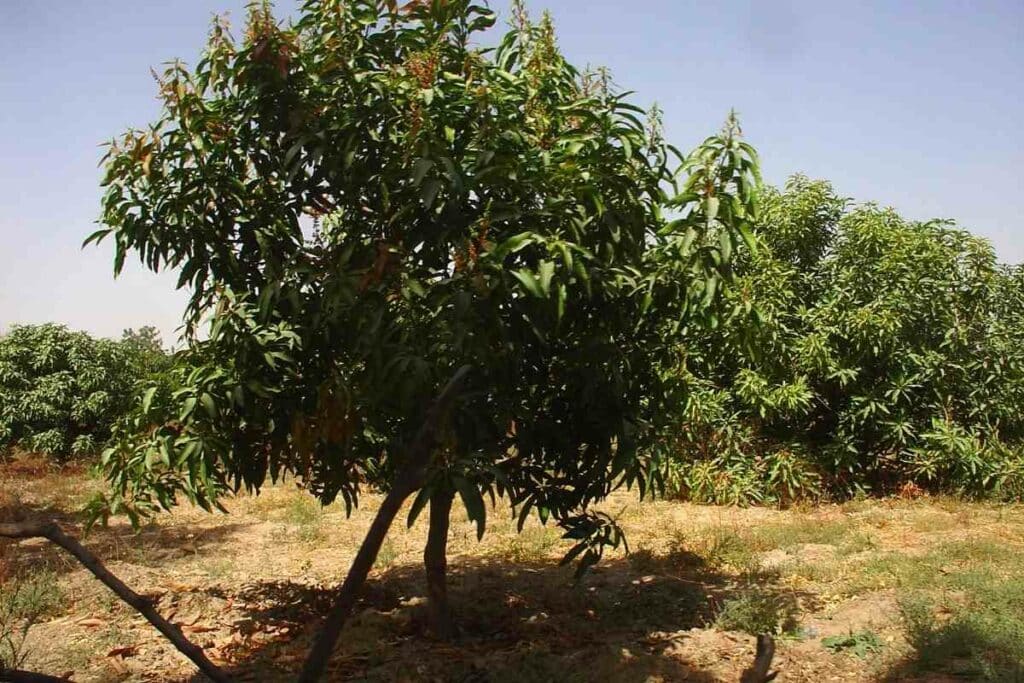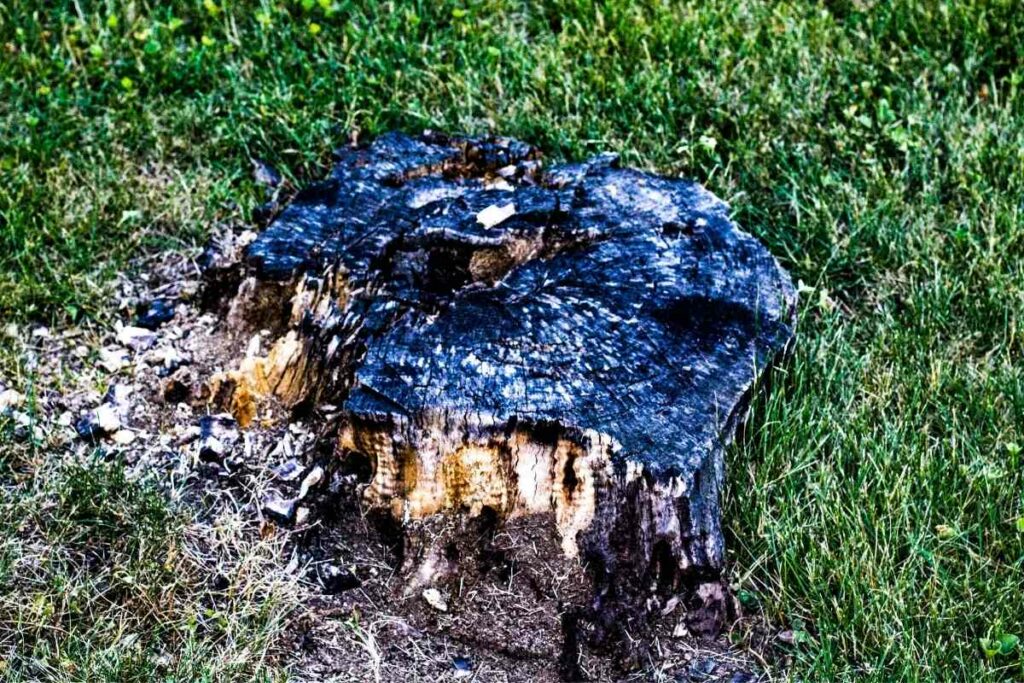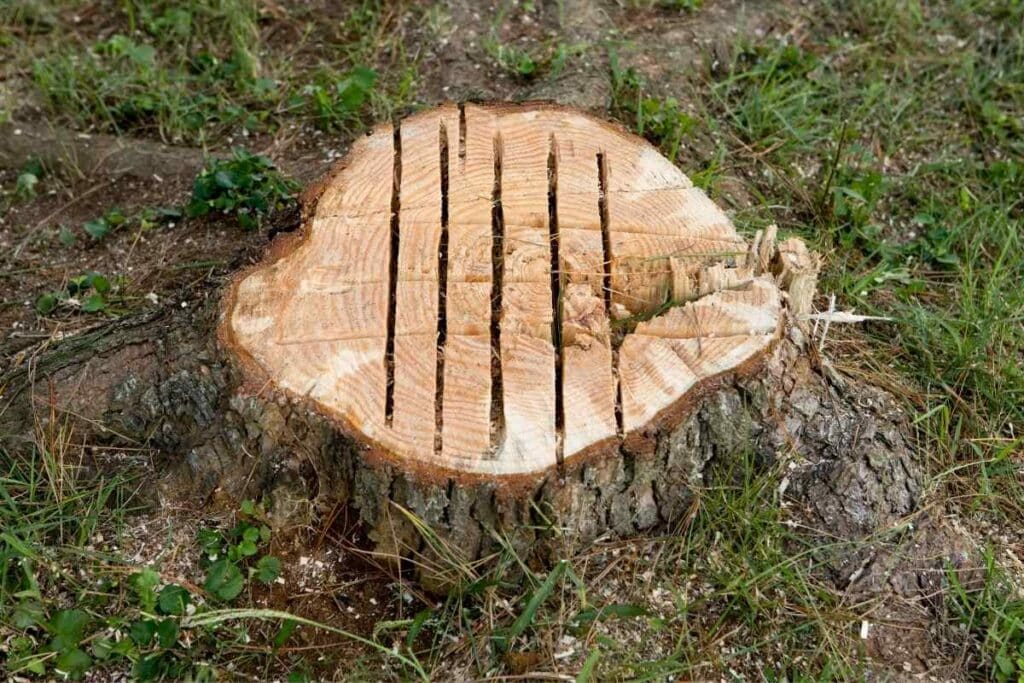Bleach is a commonly used substance on trees to control their growth or kill them.
The results of this, however, can differ. While you can target a tree with bleach, a little will unlikely be enough to kill a fully-grown tree.
In This Article – We’ll see how bleach affects trees and whether it can kill them, their stumps, or their roots. We’ll then explore the effectiveness of this method and whether there are better alternatives.
Does Bleach Kill Trees?
When it comes to an entire mature tree, bleach isn’t likely to kill it off completely.
Applying bleach to a tree can dry out the leaves, eventually causing them to die and fall off.
The parts of the tree where the bleach is applied will indeed be damaged, weakened, and in some cases, completely sterilized.

While trees can be significantly affected by bleach, it is very difficult and unlikely to kill a whole tree using only bleach.
Bleach, as opposed to other herbicides, won’t be absorbed through the tree system as effectively. While parts of the tree may well die, the roots will often manage to survive.
Weeds and certain unwanted plants are a little more likely to die from bleach compared to entire trees.
Still, unless bleach is applied systematically and in high dosage, weeds and plants will recover and grow again, especially those that are native and known to be tough to kill.
Trees and plants that require a lot of care or are not well-adapted to the environment can die from bleach.
All In All – Bleach is far from being an effective way to kill trees. In most cases, it will prove unsuccessful.
Does Bleach Kill Tree Stumps?
A more common use of bleach is to kill tree stumps.
Bleach can affect tree stumps and sterilize them on some occasions.
However, this doesn’t extend to the tree roots.

Several herbicides are packed with chemical compounds that can invade the tree system and eradicate the whole network of roots. These compounds are simply not present in bleach.
Again, the effectiveness of bleach depends on the tree in question. Some trees are more vulnerable than others.
However, it is quite difficult to affect the tree roots and kill them completely simply by applying bleach to the stumps and their surrounding areas.
Does Bleach Kill Tree Roots?
Killing tree roots with bleach is possible, but it’s difficult, time-consuming, and less effective than several other alternatives.
Killing tree roots by applying bleach to the trees, tree stumps, or soil will harm the tree but will fail to kill the roots in most cases.

Bleach can work on small weeds and other plants that are not accustomed to the climate and require constant care.
More resilient trees, plants, and even weeds have an intricate network of roots that will almost definitely survive bleach.
However, bleach will kill tree roots if it’s applied directly to them.
A common occurrence of this is when tree roots invade the sewer lines or when you drill your way through the soil and expose the roots in question.
Even Then – Remember that tree roots are sturdier than leaves. It will require a lot of time, a significant amount of bleach, and multiple applications, to kill all the roots.
How Much Bleach Can Kill A Tree?
The amount of bleach you’ll need to kill a tree will depend on the type of tree and several other factors.
While there’s no clear answer to this, bleach can theoretically kill any tree if enough of it is applied.

Of course, the problem with this is the several health and environmental risks associated with bleach.
Large amounts of bleach can cause eye and skin irritation and can significantly damage the environment.
The health and environmental hazards and the low chance of success make bleach an ineffective way to kill trees.
In Many Cases – Multiple applications of bleach are required to get any real effect on tree roots. In this regard, adequate herbicides will be the cheaper option and are much more effective.
Are There Better Ways To Kill Trees, Stumps, And Roots?

Bleach is not designed to affect a tree’s network of roots and kill it off entirely. Many systemic herbicides will get the job done much quicker.
Among the most effective chemical herbicides are:
- glyphosate
- picloram
- imazapyr
- Hi-Yield 2, 4-D.
Several commercial products contain the needed compounds and can be applied to trees, plants, and weeds.
These chemical herbicides can affect the entire tree, and effectively penetrate and kill the root system. However, chemical herbicides need to be handled with great care.
When it comes to using chemical herbicides, legal and safety issues need to be taken into account.
For Instance – You should only go with products that are authorized for home and crop use. You should also take all the necessary precautions before handling the chemicals.
Killing a tree chemically is not a straightforward process.
There are several methods and techniques that you can use to achieve the same result. While some involve cutting down the tree, others will work on standing ones.
Whether you want to cut down the tree or kill it and leave it standing, chemical herbicides are the most effective way to kill a tree.

To go about this, you should be well informed of the correct use of chemical herbicides and take all the safety measures.
Alternatively, you can hire people to do it for you. In any case, don’t hesitate to seek professional advice to figure out how to proceed.
Final Thoughts
Bleach can definitely harm trees and plants but is hardly an effective method to kill trees, stumps, and roots.
It can affect several parts of the tree, particularly leaves, but does not quite reach the root system.
While bleach may work on certain vulnerable trees and plants, roots and branches can often recover and grow again.
Chemical herbicides are much more effective and guarantee the tree is completely dead. After all, these are the ones designed to do so.
